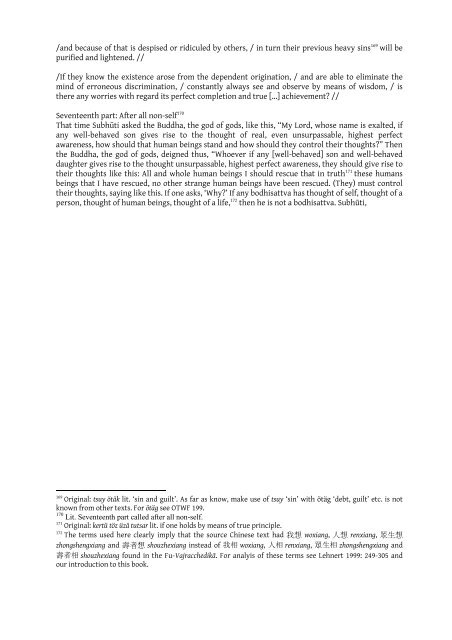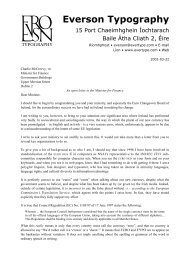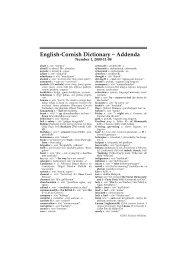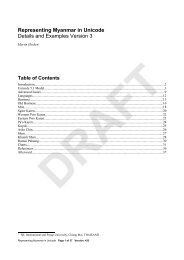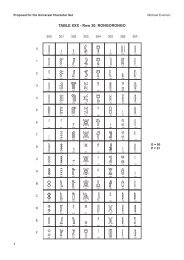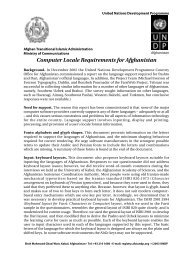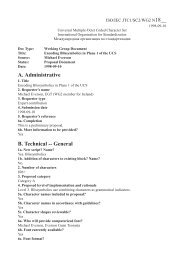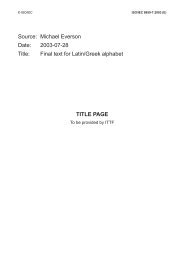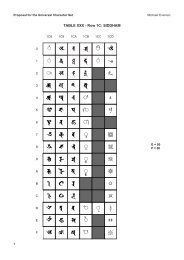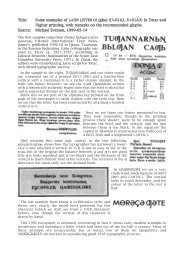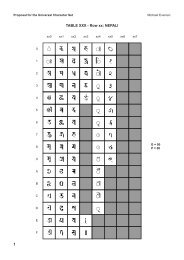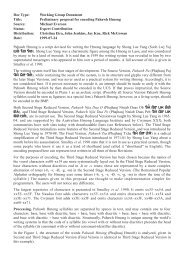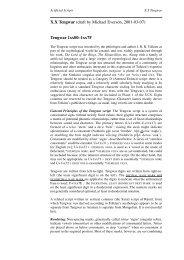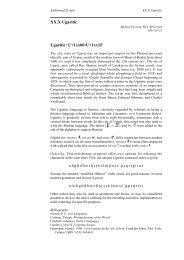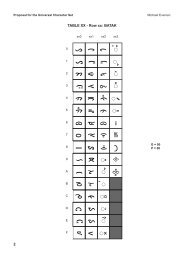The Vajracchedikā-sūtra with gāthās compiled by Master Fu - Evertype
The Vajracchedikā-sūtra with gāthās compiled by Master Fu - Evertype
The Vajracchedikā-sūtra with gāthās compiled by Master Fu - Evertype
Create successful ePaper yourself
Turn your PDF publications into a flip-book with our unique Google optimized e-Paper software.
and because of that is despised or ridiculed <strong>by</strong> others, / in turn their previous heavy sins 169 will be<br />
purified and lightened. //<br />
/If they know the existence arose from the dependent origination, / and are able to eliminate the<br />
mind of erroneous discrimination, / constantly always see and observe <strong>by</strong> means of wisdom, / is<br />
there any worries <strong>with</strong> regard its perfect completion and true […] achievement? //<br />
Seventeenth part: After all non-self 170<br />
That time Subhūti asked the Buddha, the god of gods, like this, “My Lord, whose name is exalted, if<br />
any well-behaved son gives rise to the thought of real, even unsurpassable, highest perfect<br />
awareness, how should that human beings stand and how should they control their thoughts?” <strong>The</strong>n<br />
the Buddha, the god of gods, deigned thus, “Whoever if any [well-behaved] son and well-behaved<br />
daughter gives rise to the thought unsurpassable, highest perfect awareness, they should give rise to<br />
their thoughts like this: All and whole human beings I should rescue that in truth 171 these humans<br />
beings that I have rescued, no other strange human beings have been rescued. (<strong>The</strong>y) must control<br />
their thoughts, saying like this. If one asks, ‘Why?’ If any bodhisattva has thought of self, thought of a<br />
person, thought of human beings, thought of a life, 172 then he is not a bodhisattva. Subhūti,<br />
169 Original: tsuy ötäk lit. ‘sin and guilt’. As far as know, make use of tsuy ‘sin’ <strong>with</strong> ötäg ‘debt, guilt’ etc. is not<br />
known from other texts. For ötäg see OTWF 199.<br />
170 Lit. Seventeenth part called after all non-self.<br />
171 Original: kertü töz üzä tutsar lit. if one holds <strong>by</strong> means of true principle.<br />
172 <strong>The</strong> terms used here clearly imply that the source Chinese text had 我 想 woxiang, 人 想 renxiang, 眾 生 想<br />
zhongshengxiang and 壽 者 想 shouzhexiang instead of 我 相 woxiang, 人 相 renxiang, 眾 生 相 zhongshengxiang and<br />
壽 者 相 shouzhexiang found in the <strong>Fu</strong>-<strong>Vajracchedikā</strong>. For analyis of these terms see Lehnert 1999: 249-305 and<br />
our introduction to this book.


